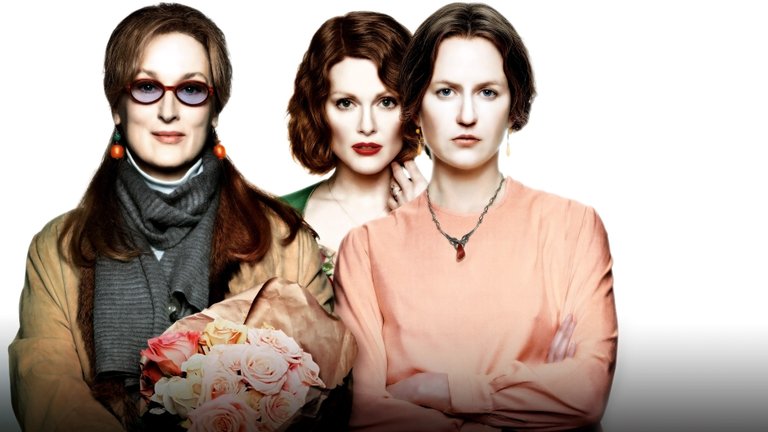Film Review: The Hours (2002)

The recipe for winning Oscars is a well-known formula in Hollywood, and it typically includes a prestigious literary source, a biography of a famous person, characters with serious mental or physical afflictions, and a social agenda that resonates with the left-wing and liberal Academy voters. In the early 21st century, this agenda often meant an aggressive promotion of gay rights. While many films have employed this formula with varying degrees of success, few have done so as intensely as the 2002 drama The Hours, which unfortunately made the viewing experience insufferable.
The Hours is based on Michael Cunningham's eponymous 1999 Pulitzer Prize-winning novel. The film weaves together three interconnected stories, each set in a different time period, exploring the lives of three women connected by Virginia Woolf's novel Mrs. Dalloway. The first story takes place in 1923 and follows Virginia Woolf, played by Nicole Kidman, as she begins writing her famous novel Mrs. Dalloway. The second story is set in 1951 Los Angeles and centres around Laura Brown, a pregnant housewife, portrayed by Julianne Moore, who is reading Mrs. Dalloway and struggling with her own identity. The third story takes place in the present day and follows Clarissa Vaughan, played by Meryl Streep, lesbian book editor, as she prepares to throw a party for her terminally ill gay friend Richard (played by Ed Harris).
The Hours was produced by Miramax, a studio at the height of its power and influence, with Harvey Weinstein being seen as an unstoppable Oscar-winning machine. It's no surprise, then, that the film garnered a number of nominations and won the Oscar for Best Actress for Nicole Kidman. However, her performance is perhaps best remembered for the prosthetic nose used to make her look as identical to Virginia Woolf as possible, rather than for any particular acting ability.
The cast, comprised of top professionals, does a good job, but it can only do so much with a terrible script by British playwright David Hare. The script confuses the audience with a complex narrative structure, tries too hard to be "clever," "artsy," and, like the novel, "postmodernist." Any scene feels overlong, and the dialogue is often pretentious. An example can be found in suicide scene, which is supposed to be shocking and tragic, but which is more likely to be greeted as source of relief by most of the audience. The historical and cultural context of the three stories, two of which are set in snobbish upper-class worlds, is reduced to issues of feminism and homosexuality, with the not-too-implicit conclusion that a person, especially if they are a woman, can only be truly happy in a same-sex relationship. As a result, the whole viewing experience becomes unacceptably demanding for anyone aware of the film's true purpose. The most telling example is the suicide scene, which is supposed to be tragic but often comes across as a relief to the viewer.
The music score by veteran composer Philip Glass is good, but it cannot overcome the deficiencies of the script. Similarly, the direction of Stephen Daldry, while competent, cannot salvage the film from its overall pretentiousness. The Hours is a film that promises much but delivers little, relying on its prestigious literary source and social agenda to carry it through, rather than focusing on telling a compelling and engaging story. It will be an almost unbearable disappointment to anyone who expected something based on the rave reviews, prestigious awards, or notable names involved.
RATING: 2/10 (-)
Blog in Croatian https://draxblog.com
Blog in English https://draxreview.wordpress.com/
InLeo blog https://inleo.io/@drax.leo
Hiveonboard: https://hiveonboard.com?ref=drax
Rising Star game: https://www.risingstargame.com?referrer=drax
1Inch: https://1inch.exchange/#/r/0x83823d8CCB74F828148258BB4457642124b1328e
BTC donations: 1EWxiMiP6iiG9rger3NuUSd6HByaxQWafG
ETH donations: 0xB305F144323b99e6f8b1d66f5D7DE78B498C32A7
BCH donations: qpvxw0jax79lhmvlgcldkzpqanf03r9cjv8y6gtmk9
Posted Using InLeo Alpha